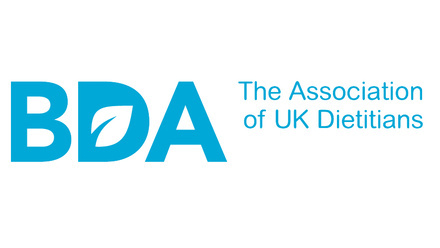Introduction
Background
Exclusions
This statement does not cover the needs of
- Adults with type 1 diabetes
- Children with type 1 or type 2 diabetes
- Pregnant women with type 2 diabetes
- Women diagnosed with gestational diabetes
- Sports people with type 2 diabetes.
- People at risk of diabetes
- People wishing to prevent diabetes
- People with ‘pre-diabetes’
What is carbohydrate?
Carbohydrates are a nutrient group comprising simple sugars (e.g. glucose, fructose), oligosaccharides (e.g. maltodextrin) starches (including amylose) and fibre (e.g. plant cellulose) (FAO/WHO 1998).
In the typical UK diet carbohydrates come mainly from cereal and cereal products e.g. bread, pasta and rice (NDNS 2014). FAO/WHO (1998) and SACN (2015) now refer to the sugars found in soft drinks, honey, syrups, fruit juices, smoothies and the sugar added to sweet foods such as cakes and biscuits as ‘free sugars’. Free sugars have been associated with an increased risk of weight gain and developing diabetes (Te Morenga 2013).
How much carbohydrate do we need in the diet?
Starches and oligosaccharides, when eaten and digested, are broken down into simple sugars including glucose. The body needs glucose for energy in all its cells including, particularly, red blood cells and the brain.
Based on all the available evidence from research across the world SACN (2015) recommends that for a healthy adult the following is required to maintain good health:
Table 1. Key Recommendations from the SACN Report on Carbohydrate (SACN 2015)
| Nutrient | Recommendation |
| Total carbohydrate | 50% energy |
| Of which free sugars | Maximum 5% of total energy |
| Fibre | 30g per day |
For people with diabetes there is insufficient evidence to recommend an optimal, specific amounts of carbohydrates in the diet (Diabetes UK 2018). This is because there have been several confounding factors in the studies of low carbohydrate i.e. participants in the studies:
- Experienced weight change when on a low carbohydrate diet (weight loss on its own has been shown to improve glycaemic control in people with diabetes)
- Consumed different amounts of total energy intake
- Consumed different amounts of carbohydrates rather than a set amount)
Also in the studies the definition of a ‘low carbohydrate diet’ has differed from study to study therefore it is not possible to compare like with like easily.
There is now a more widely recognised definition of a ‘low carbohydrate’ diet (Feinman 2015). See Table 2. for the values.
Table 2. Consensus definition of different levels of dietary carbohydrate. (Feinman 2015)
| Carbohydrate g/day | Carbohydrate % energy* | |
| Very Low Carbohydrate | 20-50g | 6-10% |
| Low Carbohydrate | <130g | <26% |
| Moderate Carboydrate | 130-225g | 26-45% |
| High Carboydrate | >225g | >45% |
| *Based on a 2000 kcal diet | ||
All healthy adults, including people with type 2 diabetes, should consume fewer foods and drinks that are high in sugar such as cakes, pastries, muffins, biscuits, lollies, ice cream and sweetened drinks. All these foods are also low in fibre and low in essential nutrients.
Effect of low carbohydrate diets on glycaemia
There is evidence from three recent meta analyses (Sainsbury et al 2018, Snorgaard et al 2017, Fan et al 2016, Korsmo-Haugan et al 2018, Huntriss et al 2018 and Meng et al 2017) to show that, in the short term, low carbohydrate diets improve glycaemic control and HbA1c. Whether or not this is due to the associated weight loss by patients on low carbohydrate diets is yet to be determined.
The meta analyses also that show there are no significant differences in HBA1c from 12 months when a low carbohydrate diet was compared to a traditional or higher carbohydrate diet (Snorgaard et al 2017, and Sainsbury et al 2018). This means that low carbohydrate diets seem to be approximately equivalent in effectiveness to other dietary approaches, being no worse, but no better and what seems to matter is supporting individuals to find the dietary approach that is sustainable for them over the long term. However, these results need to be interpreted with caution as the metanalyses were based on research trials in which people found it difficult to adhere to the low carbohydrate diets for longer than six months. Therefore, more research is needed to find out whether low carbohydrate diets have beneficial effects in the long term (over 12 months).
Effect of low carbohydrate diets on cardiovascular health
There is some evidence from meta analyses to say that, in the short term, low carbohydrate diets affect the blood lipids associated with risk of cardiovascular disease i.e. reduces triglycerides and raises HDL Cholesterol (Meng et al 2017, Huntriss et al 2018, and Sainsbury et al 2018). Whether or not this is due to the associated weight loss by patients on low carbohydrate diets is yet to be determined. Other systematic reviews and meta-analyses show no benefit at all of a low carbohydrate diet on levels of LDL Cholesterol, total cholesterol, blood pressure and body weight. (Naude et al 2014, Korsmo-Haugan et al 2018). More research is needed to confirm the short-term effects of a low carbohydrate diets on markers for cardiovascular disease as well as to demonstrate any affects in the long term (>12 months).
Future research needs
Research is needed in all the following areas to enable a better understanding of what diet(s) are most suitable for people with type 2 diabetes in the long term. More research is needed to find out:
- How much carbohydrate (as a % of total calorie intake) needs to be restricted in order to lower glucose concentrations and control type 2 diabetes and / or put it into remission
- Whether carbohydrate restriction is able to lower glucose concentrations without the usual accompanying weight loss.
- What the ideal nutritional composition of the rest of the low carbohydrate diet should be (i.e. the percentage of fat and protein) in terms of the effect on both glycaemic control as well as the risk of developing cardiovascular disease in people with type 2 diabetes.
- More research is needed to demonstrate the effect of a low carbohydrate diet in the long term (>12 months) in terms of its effect on glycaemic control and risk of cardiovascular disease.
References
Dyson PA et al (2011a) Diabetes UK evidence-based nutrition guidelines for the prevention and management of diabetes. Diabet Med, 28(11):1282-8.
Diabetes UK (2018) Evidence-based nutrition guidelines for the prevention and management of diabetes. Available at: https://diabetes-resources-production.s3.eu-west-1.amazonaws.com/resources-s3/2018-03/1373_Nutrition%20guidelines_0.pdf [Accessed 4 September 2018]
NICE (2018) Guidance 28. Type 2 diabetes in adults – management. Available at: https://www.nice.org.uk/guidance/ng28/resources/type-2-diabetes-in-adults-management-pdf-1837338615493 [Accessed on 4 September 2018]
McArdle et al (2016) The role of carbohydrate in diabetes management. Practical Diabetes vol 33 no 7. 237-242.
Dyson PA, et al (2011b). Diabetes UK evidence-based nutrition guidelines for the prevention and management of diabetes. Diabet Med, 28(11):1282–8.
Dyson PA. (2015) Low carbohydrate diets and type 2 diabetes: What is the latest evidence? Diabetes Ther, 6(4):411–24.
Lean, M et al. (2018) Primary care-led weight management for remission of type 2 diabetes (DiRECT): an open-label, cluster-randomised trial. The Lancet , Volume 391, Issue 10120 , 541 – 551.
NICE (2018) Clinical Guidance 189. Recommendations Bariatric surgery for people with recent onset type 2 diabetes. Available at: https://www.nice.org.uk/guidance/cg189/chapter/1-recommendations#bariatric-surgery-for-people-with-recent-onset-type-2-diabetes [Accessed on 4 September 2018]
FAO/WHO. (1998) Carbohydrates in human nutrition (FAO Food and Nutrition Paper 66). Rome: World Health Organisation and Food and Agriculture Organisation.
National Diet & Nutrition Survey (2014) Results from Years 1–4 (combined) of the Rolling Programme (2008/9 to 2011/12). London: Public Health England.
SACN (2015) Carbohydrates and Health. Available at: https://assets.publishing.service.gov.uk/government/uploads/system/uploads/attachment_data/file/445503/SACN_Carbohydrates_and_Health.pdf [Accessed on 4 September 2018]
Te Morenga L, et al. (2013) Dietary sugars and body weight: systematic review and meta-analyses of randomised controlled trials and cohort studies. BMJ: 346:e7492.
Feinman RD, et al (2015). Dietary carbohydrate restriction as the first approach in diabetes management: Critical review and evidence base. Nutrition, 31(1):1–13.
Sainsbury E, Kizirian NV, Partridge SR, Gill T, Colagiuri S, Gibson AA. (2018) Effect of dietary carbohydrate restriction on glycemic control in adults with diabetes: A systematic review and meta-analysis. Diabetes Res Clin Pract.139:239-252.
Snorgaard O, Poulsen GM, Andersen HK, Astrup A. (2017) Systematic review and meta-analysis of dietary carbohydrate restriction in patients with type 2 diabetes. BMJ Open Diabetes Res Care. 5(1):e000354.
Korsmo-Haugen HK, Brurberg KG, Mann J, Aas AM.(2018) Carbohydrate quantity in the dietary management of type 2 diabetes - a systematic review and meta-analysis. Diabetes Obes Metab. 2018 Aug 11. doi: 10.1111/dom.13499. [Epub ahead of print].
Huntriss R, Campbell M, Bedwell C. (2018) The interpretation and effect of a low-carbohydrate diet in the management of type 2 diabetes: a systematic review and meta-analysis of randomised controlled trials. Eur J Clin Nutr. 72(3):311-325.
Naude CE, Schoonees A, Senekal M, Young T, Garner P, Volmink J. Low carbohydrate versus isoenergetic balanced diets for reducing weight and cardiovascular risk: a systematic review and meta-analysis. PLoS One. 2014 Jul 9;9(7):e100652.
Meng et al (2017) Efficacy of low carbohydrate diet for type 2 diabetes mellitus management: a systematic review and meta-analysis of randomised controlled trials. Diabetes Research and Clinical Practice, 131: 124-131.




